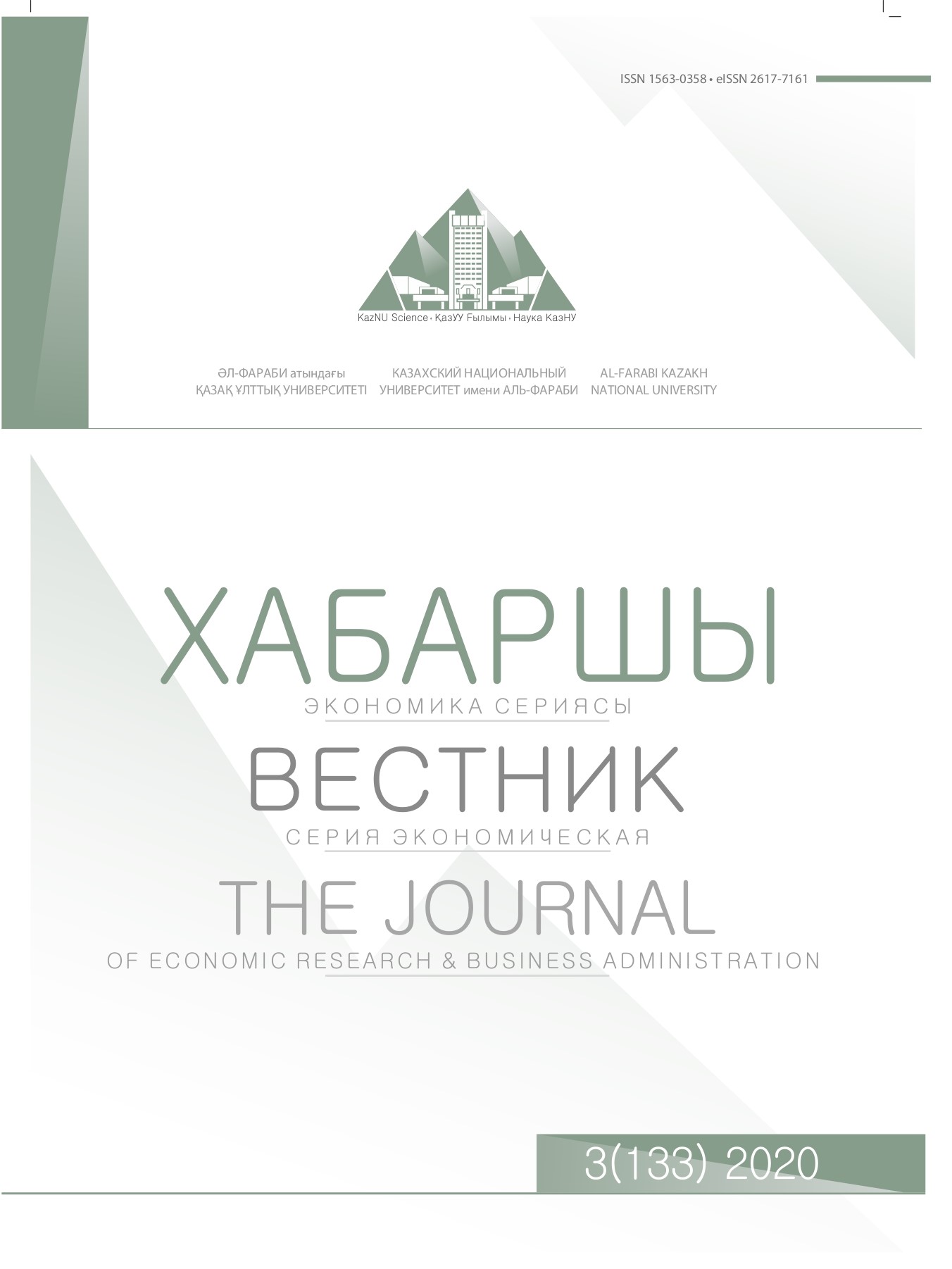Taxes as a tool for ensuring economic security of the territory
DOI:
https://doi.org/10.26577/be.2020.v133.i3.09Abstract
The article defines the place, significance and functional role of taxes and the tax system in ensuring
the economic security of the state and its territorial units; The factors of the occurrence and the impact
of tax threats on economic security are identified. The importance of the formation and successful implementation
of an effective tax policy in the functional relationship of all its elements and mechanisms
for ensuring the economic security of the territory is indicated. It is noted that the effective control and
verification activities of the tax authorities allows maintaining the positive dynamics of tax revenues of
the budget system of the Russian Federation, which plays an important role in ensuring the economic
security of the subjects of the Republic of Armenia and the state as a whole. A detailed analysis of the tax
revenues of the Russian Federation and the Oryol region is carried out, the effectiveness of the control
and verification activities of tax authorities at various state levels is assessed by absolute and relative
indicators. The authors identify factors that have a significant impact on the level of tax collection in
Russia, identify the directions and conditions for the growth of tax revenues in the region. In addition,
mechanisms for reducing tax debt to the consolidated budget of the region are proposed and justified,
and the author’s vision of the most promising areas for increasing the effectiveness of the control and
audit activities of the tax authorities of the Oryol Region is outlined to ensure the economic security of
the territory.













